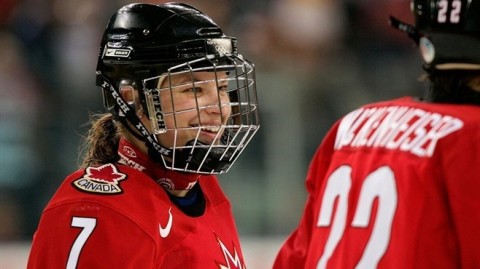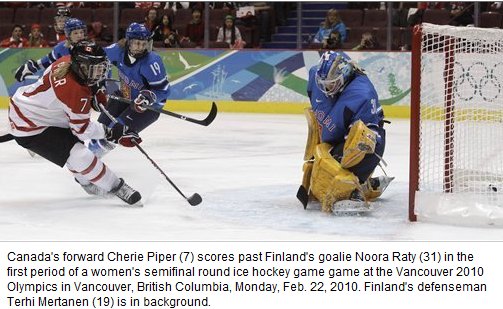Mick Hume isn’t a big fan of the Winter Olympics, and suggests that they revert back to their original name:
The six nations to have won medals at every winter games are, unsurprisingly, Austria, Canada, Finland, Norway, Sweden and the US. (Of the other snowy powers, Germany might be on the list but was banned from competing immediately after the Second World War; the Soviet Union did not enter until the 1956 winter games, where it won more medals than any other state.)
This snow-job badly skews the assessment of sporting prowess. Thus Jamaica, the undisputed king of world sprinting, remains a Cool Runnings joke at Sochi. Africa, the new powerhouse of global athletics, is barely there; an American-based student has just become the first Winter Olympics entrant from Zimbabwe, where it has not snowed since before he was born.
Before the International Olympic Committee decided to claim winter sports for itself, the major festival of sporting events on snow and ice, also held every four years, was called the Nordic Games. That might still seem a more fitting name for it today.
There’s also the quite fair comment that unlike the original Olympic events, too many of the Winter events are, for lack of a better word, effete sports for rich folks:
The Winter Olympics have little such universal appeal. Most events are arcane, technical affairs of which we know little and understand less, the commentators talking a foreign language – hog line, backside rodeo, bossing that melon – even when apparently speaking English. The competitors often seem a self-defined cliquish elite not only in the best sporting sense, but also in not-so-admirable cultural terms. Whatever they might think, however, to be the quickest of a closed shop of posh blokes swanning about the slopes in garish Euro-trash garb is hardly on a par with Usain Bolt’s Olympic title of the Fastest Man on Earth.
No doubt the accusation of dull, sectional, technical cliquishness could also be levelled at a good few fringe events in the summer games, from sailing to dressage – but then they shouldn’t be Olympic sports, either.
Many of these events look more like ‘games’ in the childish sense than world-class sport. For instance, speeding down an icy slope on a tea tray, either head-first (‘skeleton’) or feet-first (‘luge’), would be many a reckless youth’s idea of fun. Several of the new events introduced at Sochi have made matters worse, giving out Olympic gold medals for messing around doing smartarse tricks in the snow. The reaction to Jenny Jones winning the UK’s first-ever medal on snow in one such event, the ‘slopestyle’, rather captured the puerile atmosphere, with all three BBC commentators squealing like Blue Peter presenters on speed (‘This feels like I’ve got slugs in my knickers!’) before all bursting into tears when Jones got bronze. As Britain’s top TV columnist Ally Ross observed in the Sun, ‘Snowboarding is, and always will be, just young people twatting about’.
However, this suggestion would eliminate one of the all-time evergreen sporting jokes “… and 4.2 from the Russian judge”:
As for the events decided by judges’ marks, there is a good case for arguing that no such subjective carry-on should ever be considered as a serious sporting contest. Even one of the greatest sports, boxing, can be demeaned by the idiosyncrasies and idiocies of judges. Sporting tragedy becomes farce when judges award Olympic medals for dancing on ice or doing tricks in the snow, almost reducing the ‘greatest show on earth’ to the level of reality TV (‘Strictly Come Sochi?’). Britain may still go on about Torvill and Dean’s gold as ‘our’ finest Winter Olympic hour, but if ice dancing is a real Olympic sport it is hard to argue with those who want the ballroom version included in the summer games.
Personally, I haven’t watched any of the Olympic coverage this time around. Elizabeth’s god-daughter played hockey for Canada in three previous Olympic games, but she retired from competition last year … so there’s not the same level of personal interest now.





